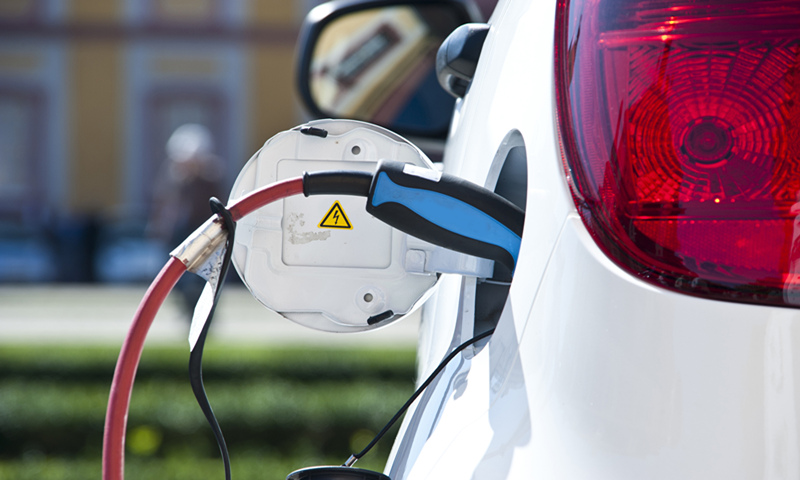
A NEV is charging. Photo: VCG
Shanghai municipal government on Thursday rolled out a plan to promote use of electric vehicles and accelerate autonomous driving by 2025.
The city expected the annual production of new energy vehicles to exceed 1.2 million by 2025, with the total output value of new-energy vehicles exceeding 350 billion yuan ($48.66 billion), accounting for more than 35 percent of the value of the city's automobile manufacturing industry, according to a white paper on the city’s transportation development on Thursday.
To promote the development of new-energy vehicles, Shanghai plans to lift the pure electric vehicles to over 50 percent of newly purchased vehicles by individuals, increase new-energy buses and taxis to more than 80 percent of the total number and the number of hydrogen fueled buses to 10,000 units by 2025.
Efforts will also be made to improve the supporting infrastructure and service of charging and replacement facilities.
The city plans to build 760,000 charging piles and 300 swapping stations by 2025, launch 70 various types of hydrogen refueling stations, covering key application areas.
In the digital sector, Shanghai will move to promote autonomous driving, connected vehicles and relevant road infrastructure construction.
The city will accelerate the development of intelligent connected vehicle terminals, have assisted autonomous driving (L3 autonomic driving) vehicles account for more than 70 percent of new car production and have advanced autonomous driving technology (L4 autonomic driving) applied in logistics, sanitation, passenger transport by 2025.
Shanghai will also strive to achieve 100 percent vehicle-road coordination in key areas and create more than 10 application scenarios such as unmanned bus and unmanned delivery.
The city’s layout is in line with the nation’s design in promoting low carbon electric vehicles and autonomous driving.
From January to August, China's global market share of new energy passenger vehicles increased to 68 percent, which was mainly driven by the strong demand for new energy in China, said Cui Dongshu, secretary general of the China Passenger Car Association (CPCA).
In August, the Ministry of Transport released a set of national guidelines to support the use of self-driving for taxi fleets under given conditions, a move that is expected to help speed up the commercialization of autonomous vehicles in China.
Global Times

